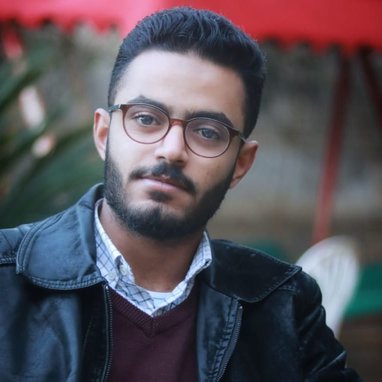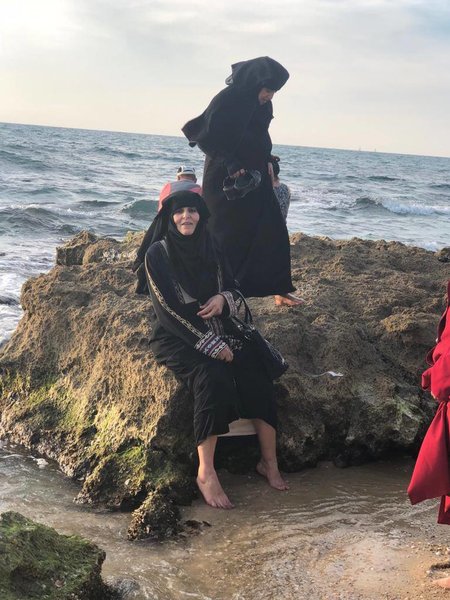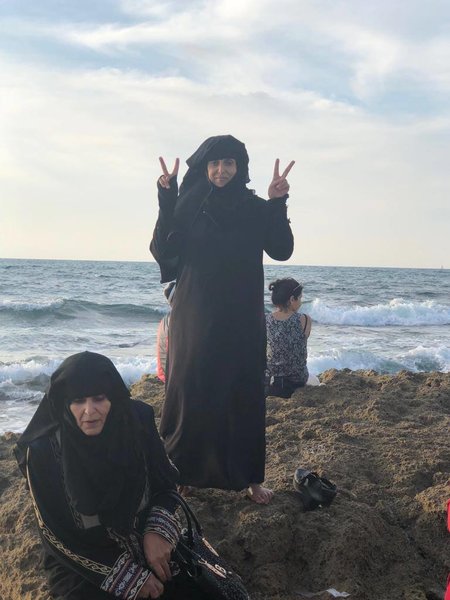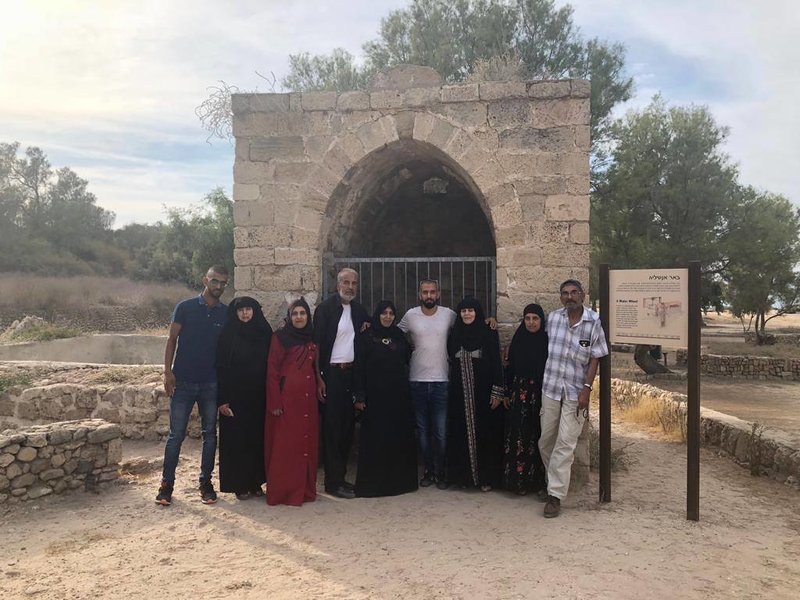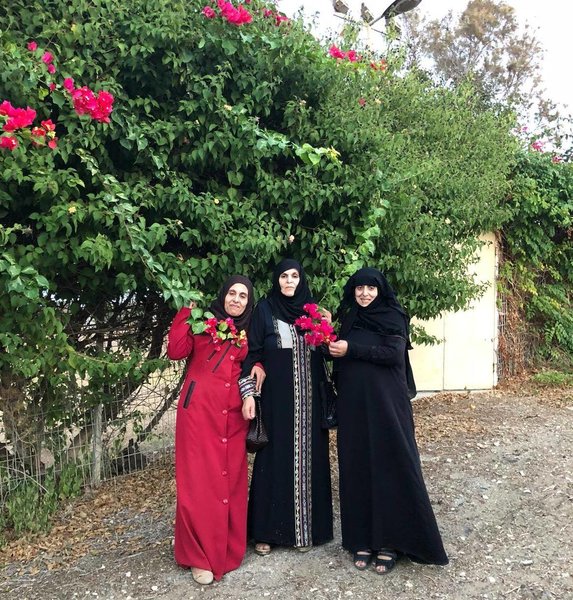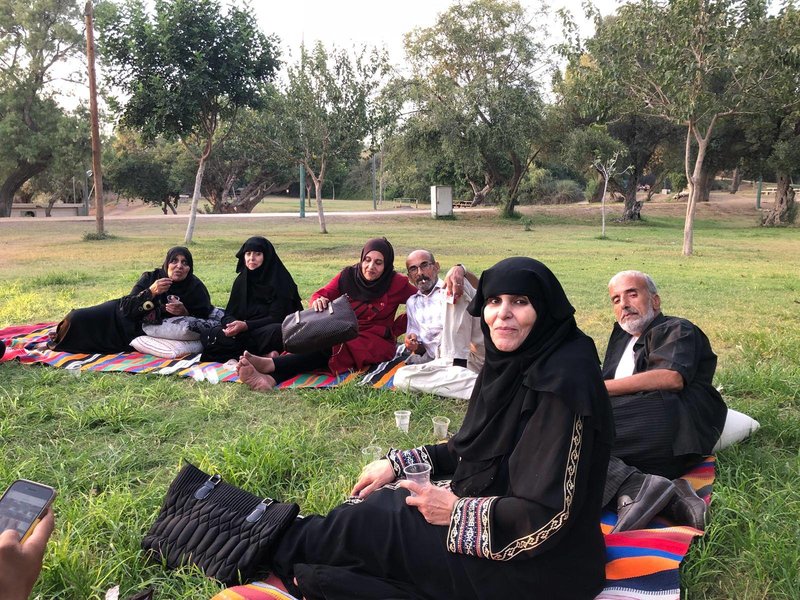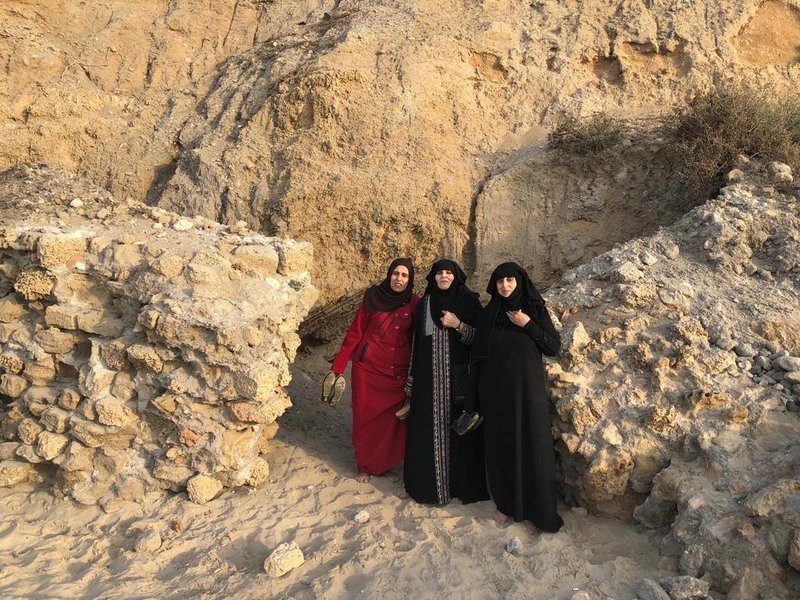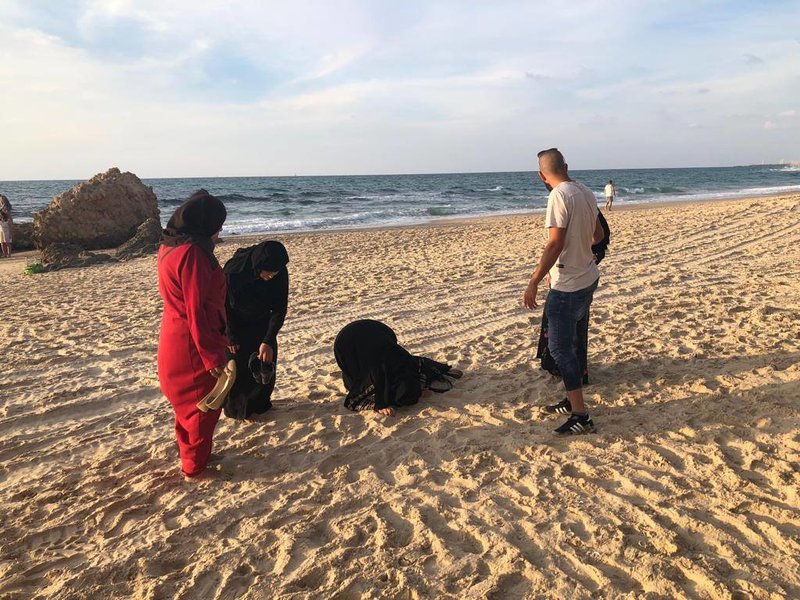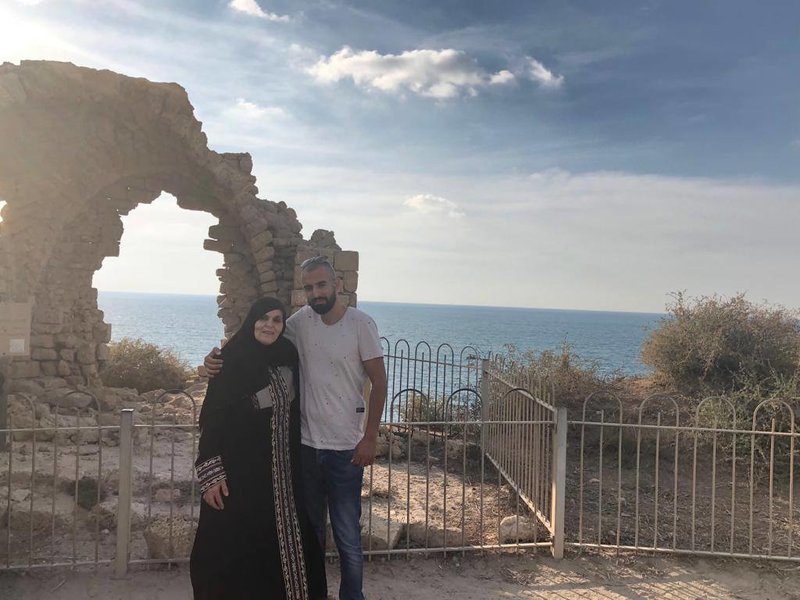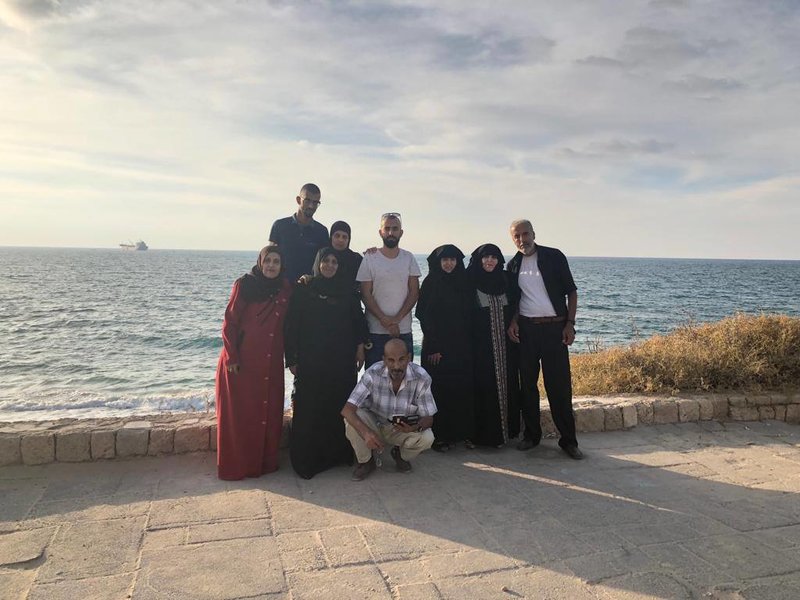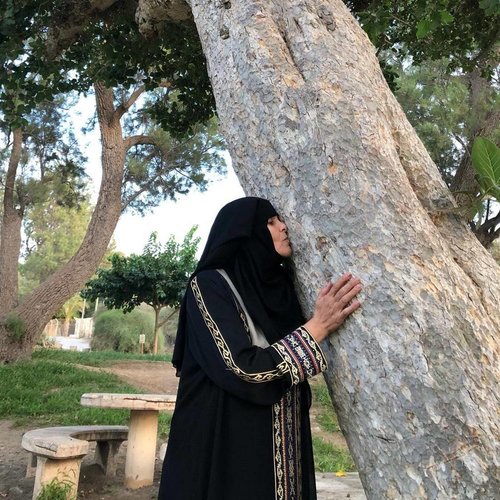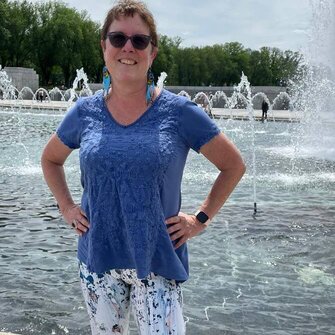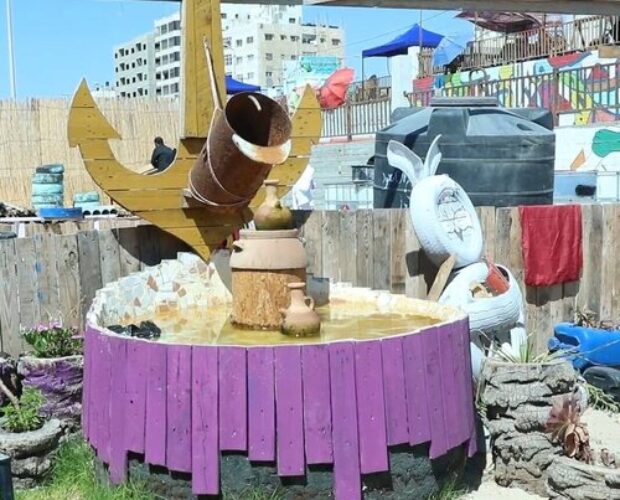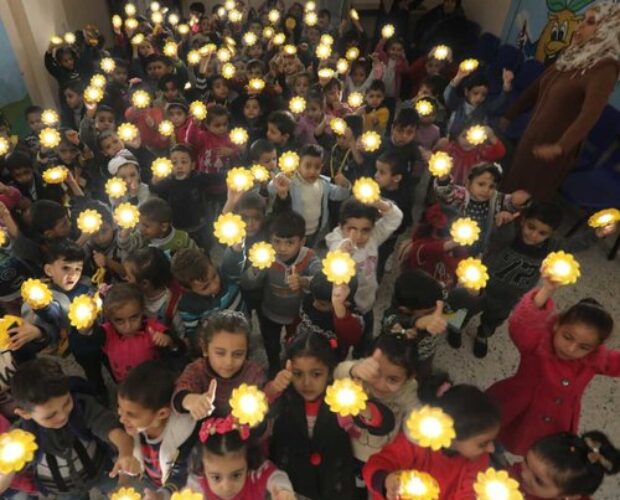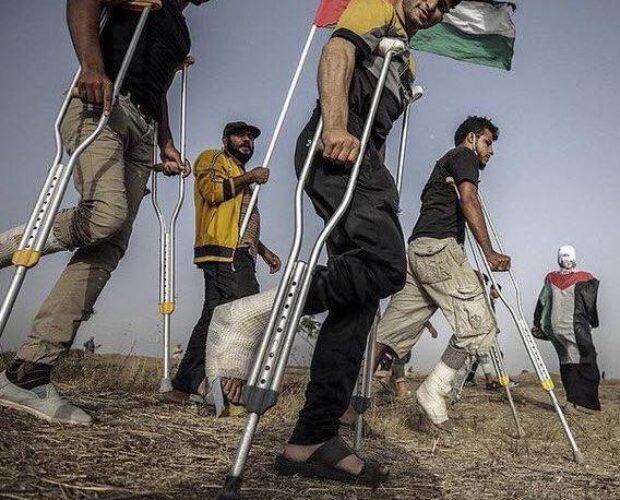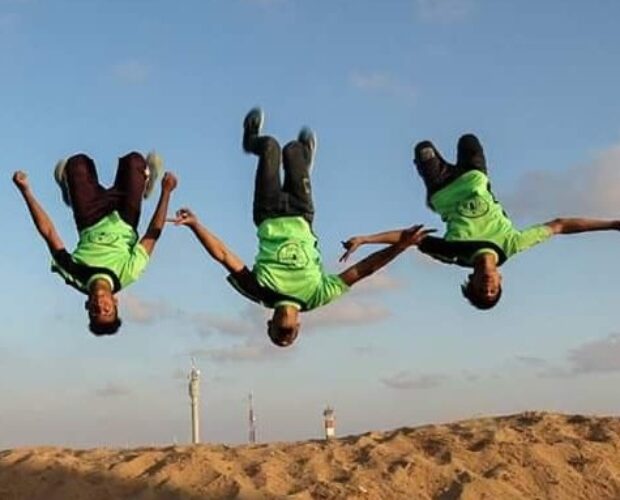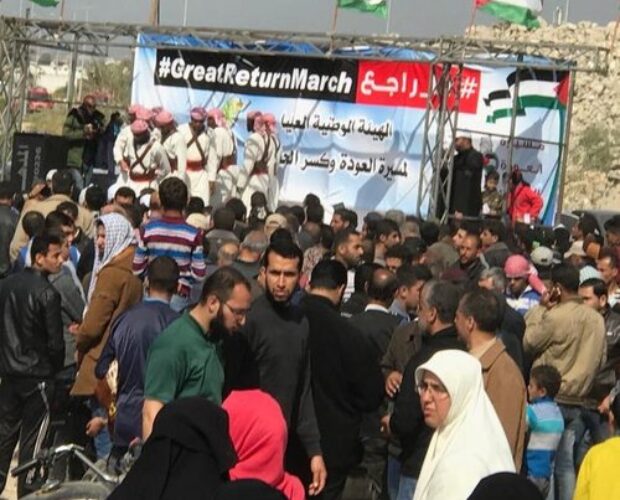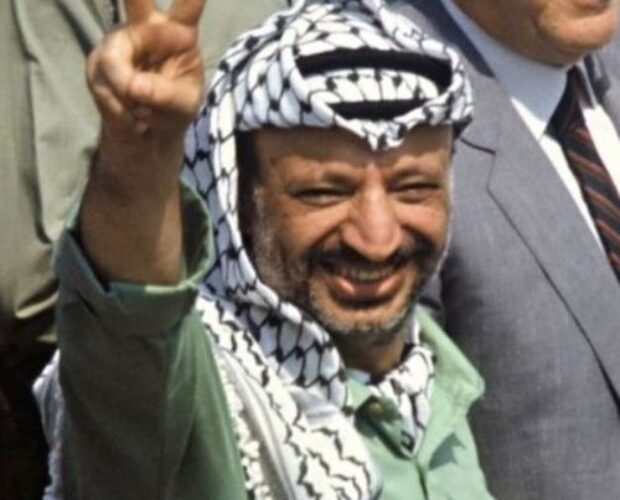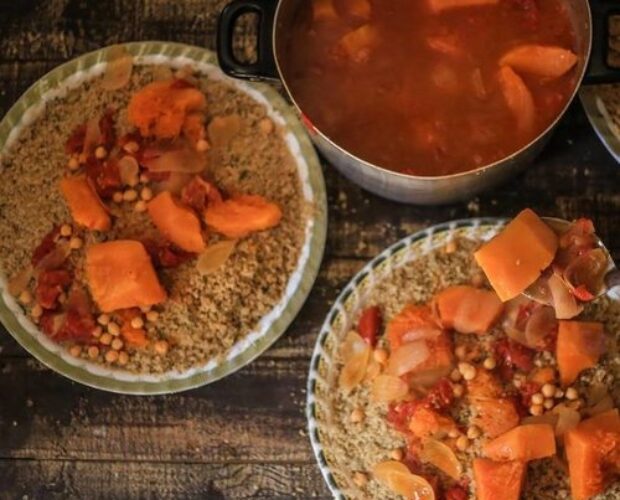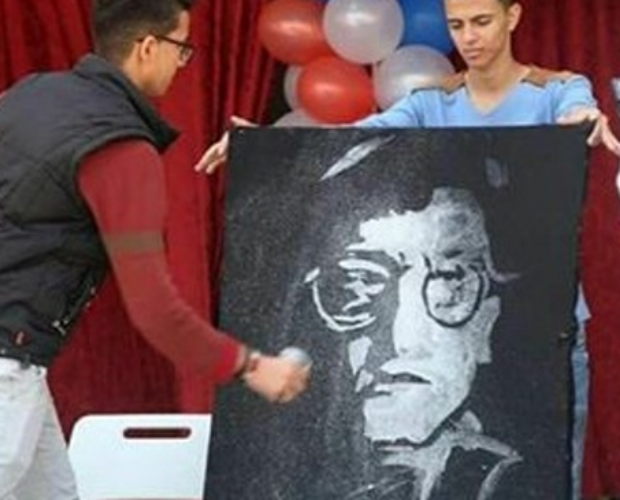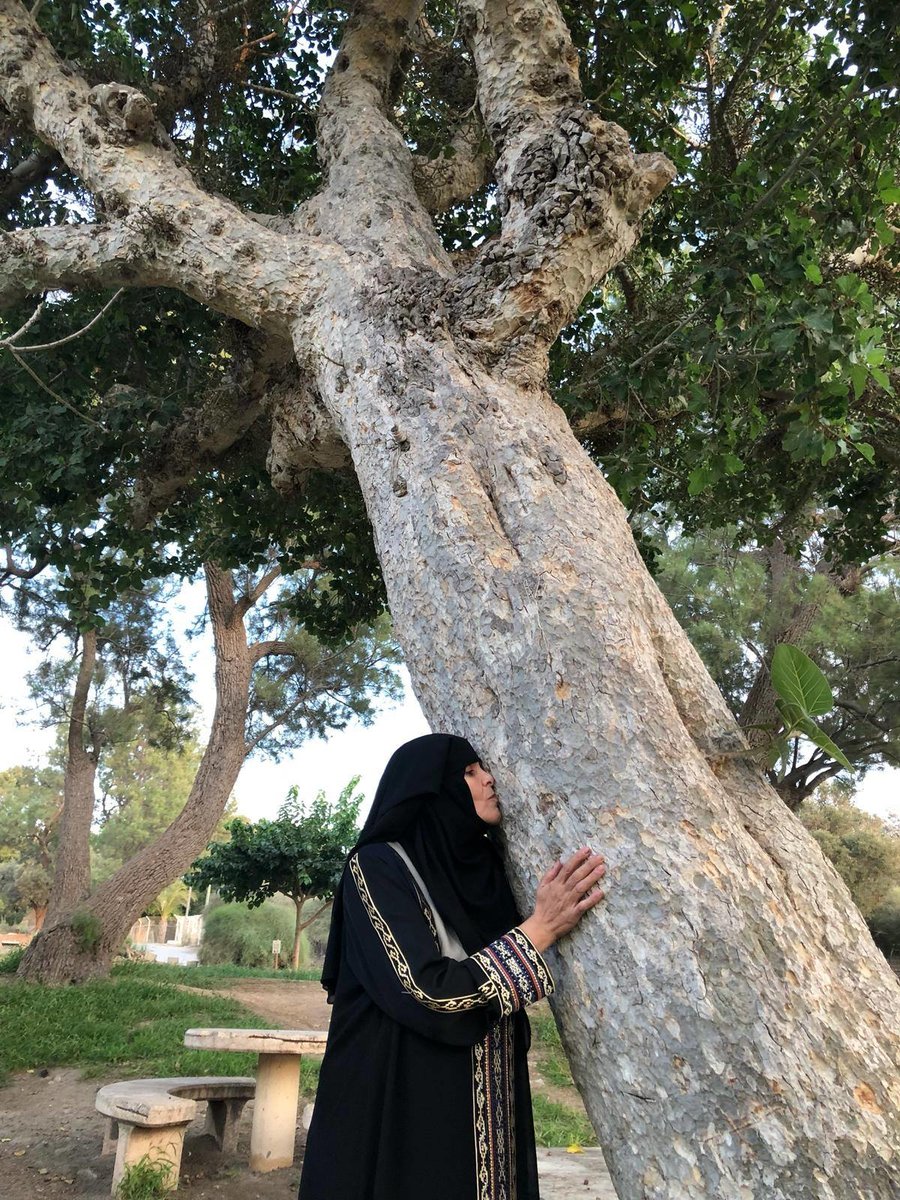
I think of my grandmother Khadra (which means “green” in Arabic) as an olive tree. No wonder, since my mind can wander far off the scale of reality to create my own time and place. On this day, it is 10 minutes after midday. As a northerly wind sweeps through the garden, the green branches of our sole olive tree dangle outside the half-opened window, sneaking its fingers inside her sanctuary.
I sit beside her, waiting for the dream—that ever-recurring dream—to disrupt her sleep. The door rattles every now and then in the heavy, still air. It has been more than six hours since we last were graced with electricity. I don’t really notice the cloying heat, however; I am preoccupied with my waitful watch.
Suddenly, the tap-tap-tapping of the branches rouses her. Khadra struggles up from her bed, startled, then falls back, frustrated and depressed to discover once again it was all just a dream. She is 69 and lives in Gaza; she no longer is that girl in her early 20s in Asqalan. Her hometown no longer, it is only 13 kilometers away. But it is claimed by Israel, and thus might as well be in another world.
The last time my Khadra saw her elder sister, Fouzia, was 45 years ago when they attended the same college in Ramallah. The two siblings had fled with their parents to Gaza after the 1948 war that created Israel and forced them from their home, but had been able to visit the West Bank for university. Fouzia met a Palestinian man living in Beersheba and married, thinking it would allow her to stay closer to her family’s ancestral home. However, she paid a price: Her family was permanently separated.
Over the past 25 years, Khadra has sought permission from Israel every year to return to see her sister, but it was denied every time. And almost daily, she dreams of being back home, hearing the piercing voice of the morning peddlers who sold cookies early every morning, walking the narrow allies of the village and relaxing toward the end of the day to the high-pitched but deeply warm voice of the flute played by a Palestinian peasant after a long day of hard work. And she finds solace from the Asqalan sea, which defeated invaders of all sorts throughout history.
Khadra tells me when she awakens from these dreams that she has finally realized Palestine is the future, not just the past as she thought when she was young. When Palestinians are young, they fantasize about futures in fancy places outside Palestine where life is easier. But then they realize that if a tree is so steady, it is because of the rich land beneath. And when they do, it is too late. They can’t return.
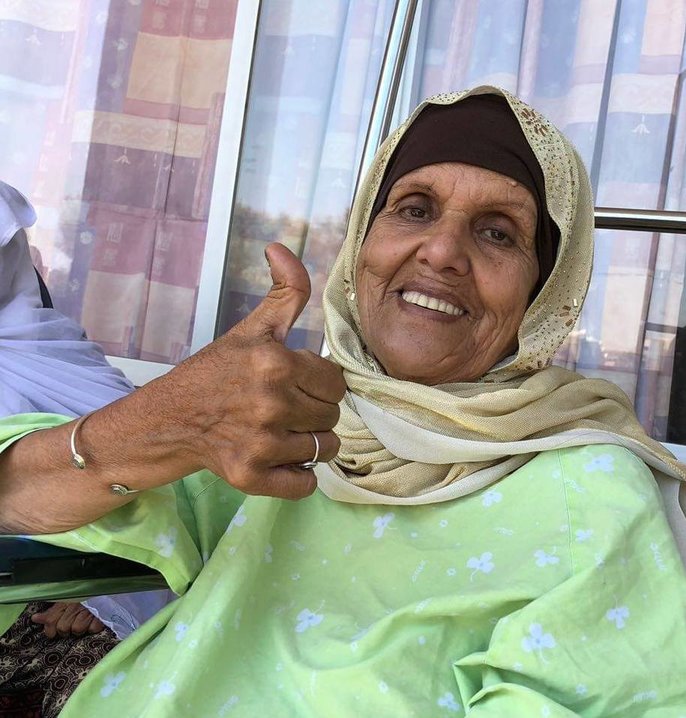
But Fouzia, too, suffered. Unlike so many other Palestinians who assumed exile was a temporary existence until they could make their way home, Fouzia did not. She knew Palestine was and still is the land of “sad oranges,” as Ghassan Khanafani described it. She wasn’t separated from her land, but she never saw her family again. Neither could she truly feel at home, since Israelis occupied it—their bullets and teargas like a lottery all Palestinians are likely to win.
Diagnosed with lung cancer three years ago and unable to breathe well, Fouzia’s hope of travel was extinguished. It was up to Khadra now. She felt driven more than ever to see her sister one last time before one of them died.
On September 26, 2018, however, Fouzia left this world. One day later, Khadra and five of her siblings, who had applied with her every year, received travel permits. It was as if the Israelis were continuing to toy with them.
Nevertheless, they decided to make the trek, in honor of her sister and her home. “My heart yearns for the distant, bittersweet memories to which I have been committed for so long,” she told me. “They are even more vivid now as the Israelis attempt to wipe them out of our brains. It has never been only about my sister. I pined for the memories of all that is home. To me, it has not been history books, ideologies or even Palestinian literature that made identify with the land. Instead, it is the memories of the land’s whereabouts that have protected my sense of identity. The smell of the land, the color of our Palestinian skins, the story of the Nakba [the “catastrophe that created Israel on our homeland] is our reality now. It is the story of Palestine, the paradise lost.”
The group made it through the countless walls and checkpoints erected by the Israelis to keep us out. As soon as they arrived, Khadra visited the cemetery where Fouzia had grown cold in her grave. She kept a vigil, staying all night above her sister’s resting place. Then she traveled to Asqalan. They were only allowed to visit for a couple of days, but it served its purpose. Khadar didn’t just kiss the land (and the trees, the symbol of life), but brought some soil back to Gaza. Now, she can kiss her home whenever she is awakened by the knocking olive branch.
Khadra has become our source of the Palestinian narrative for all of us who are younger. We are always in the mood for her stories. Our passion will stay alive until tyranny is finally defeated by the tyrannized, sighing in relief.

